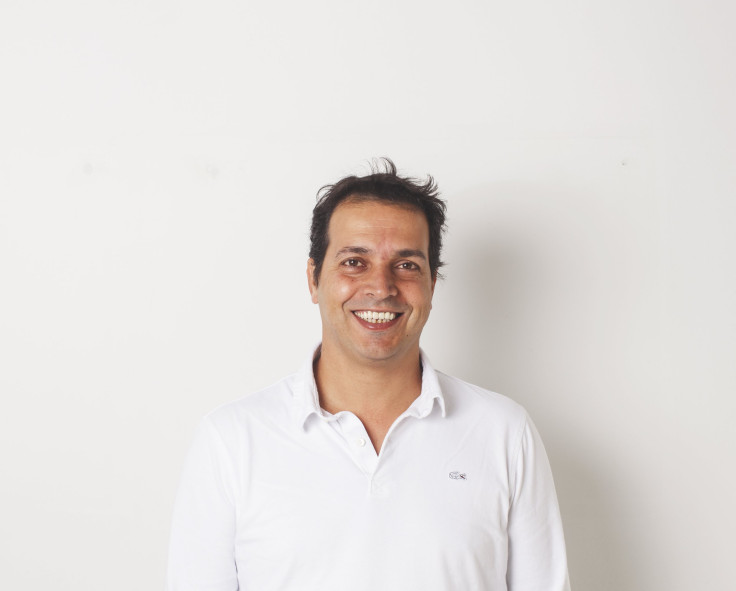Why Bancor Wants To Become The YouTube Of Cryptocurrency
The Bancor Foundation made history in June with a record-breaking initial coin offering, raising $156 million in just three hours, attracting investment from fintech heavy weights like billionaire Tim Draper. This ICO was one of the most controversial the world has ever seen. If the Israeli team behind this Switzerland-based nonprofit overcomes the initial scandals, Bancor could reshape the cryptocurrency marketplace as we know it.
First, a technical glitch forced the blockchain project to extend the ICO’s timeframe, which outraged participants who worried about the scarcity and value of their BNT tokens. Then, skeptics tore Bancor’s white paper to shreds on Twitter and blogs, claiming the protocol won’t provide the promised liquidity. Some personal attacks against the team were anti-Semitic and sexist, but there were also critiques that dissected the code itself.
Cryptocurrency expert Emin Gün Sirer, associate professor of computer science at Cornell University, was one of the protocol’s most outspoken critics. Sirer wrote in a quasi-viral blog post that BNT is both technically flawed and redundant, arguing people could already use ether tokens to solve the same liquidity problem. He wrote: “Bancor shortchanges its users” by rounding token values and “Bancor did not test their own math.”

A few days later, Israeli Bitcoin Association Chairman Meni Rosenfeld stepped down from his role as a Bancor advisor. Yet despite the controversy, Invest.com chose to launch its first token generation event with Bancor, creating a cryptocurrency called Stox. The Stox ICO raised over $30 million.
“We are excited to collaborate with Stox and support their effort to become a pioneer member in the Bancor network,” Bancor co-founder and product architect Eyal Hertzog said in a press statement. “We believe that the guaranteed liquidity and the stability of STX will benefit token holders, the Stox project at large and provide a strong case study for the Bancor protocol.”

The truth is, it’s too soon to say how well BNT tokens actually work. However, it’s easy to see the woman leading this charge, 34-year-old Bancor co-founder and head of business development Galia Benartzi, has both feet planted firmly on the ground. Instead of shying away from criticism, Benartzi told International Business Times her team shares their personal contact information online to encourage people with questions to reach out to them directly. For example, Hertzog talked with Sirer on both Twitter and over the phone, conversations Sirer told IBT he found friendly and positive.
Regardless of what people might say about her, Benartzi wants nothing less than to change the world. She grew up in Silicon Valley and first discovered bitcoin in 2011, right after she finished graduate school at John Hopkins. She’s also a Dartmouth alumni with a penchant for speaking out to support women entrepreneurs. “It [traditional money] served an archaic system, that only governments can make money and only rich people can use it to make more money,” she told IBT. “I want to see women at the table as we design a new system.”
How exactly does the Bancor team plan to divorce money from monopolized power? By setting up cryptocurrency with built-in smart contracts connecting little experimental blockchain communities to a shared ether reserve that isn’t owned by a single person or group. Now niche tokens with just a few users can still retain liquidity, aka the ability to buy, trade or cash out completely whenever people want.
“The Bancor protocol is that cryptocurrencies can hold one or more other cryptocurrencies in a reserve, this reserve functions as a shared liquidity pool, essentially, for the token holders,” Benartzi said. “You can think of it a little bit like fractional reserve banking. When you set up a smart token like this according to the Bancor protocol, you figure out a percent that your reserve will stay constant at. Let’s say 10 percent. The smart token automatically calculates its price, making sure to keep that reserve balance at that constant 10 percent, if that’s what you set it as.”
Users won’t need to find a buyer, seller or a currency exchange. Instead, the smart contract handles all the grunt work the same way a credit card company does if I want to use my American bank account to buy a late night falafel at a restaurant that only accepts Israeli shekels. Instead of walking around to find an open currency exchange booth, swapping dollars for shekels, then going back to the restaurant, I can buy the falafel with an international credit card. The bank will do the currency exchange automatically and charge me an extra fee. Unlike a credit card, Bancor’s smart contract won’t have comparable transaction fees.
The BNT smart contract actually mints tokens itself and destroys tokens too, to keep the supply balanced. This protocol aims to maintain fair market value for small tokens that don’t have enough traction to get listed on a mainstream cryptocurrency exchange. “It’s very hard for smaller tokens to get listed on exchanges,” Benartzi said. “Many companies have died on the vine because of liquidity problems.”
If Bancor succeeds, developers will no longer need to rely on exchanges like Coinbase or “whales,” aka cryptocurrency power players like the Bitcoin Investment Trust. “You can think of the token, the smart contract, as a robotic central bank, an AI that mints itself and contracts supply when demand is going down.” Benartzi said. “Literally the world has never seen anything like this.” By August, Bancor’s network had almost 80 million BNT tokens.
Like Ethereum and Tezos, Bancor’s technology is overseen by a nonprofit foundation based in Switzerland’s Crypto Valley, so the network’s infrastructure can build up without conflicts of interest related to profit. The team also invested their own personal blockchain funds in BNT. "If there’s foul play, the first people to lose their value would be us,” Benartzi said. Even so, Bancor’s team garnered widespread criticism because BNT isn’t yet decentralized like bitcoin.
BNT tokens have a built-in backdoor, allowing the Bancor team to control or destroy tokens during the first three years of operation, which Benartzi called a “pilot phase.” The team plans to upgrade BNT tokens and decrease centralized control after three years, once they feel confident the tokens proved their security in real market situations. “You need trust in order to go trust-less,” she said. “No amount of testing will protect you from something like the DAO [hack].”
If the protocol works according to plan, Bancor could become the YouTube of cryptocurrency. “Liquidity was always a problem. It was almost impossible to connect those currencies to the larger economy,” Hertzog told IBT. “One day, it was hard to open your own video channel. Then YouTube opened up and what did that do the world?”
Hertzog said Bancor will do the same thing for cryptocurrency that blogging and YouTube did for content creators, providing an opportunity to connect with a wider audience without gatekeepers. Just like YouTube now teems with niche communities that have their own value without needing to go viral or appeal to the masses, so could new tokens in the blockchain space.

The future of blockchain won’t necessarily be determined by giants like bitcoin and ether alone. “The currency that you accept is the community that you are a part of,” Hertzog said. “With Bancor, there is no such thing as liquidity risk because the asset is always liquid."
© Copyright IBTimes 2025. All rights reserved.



















